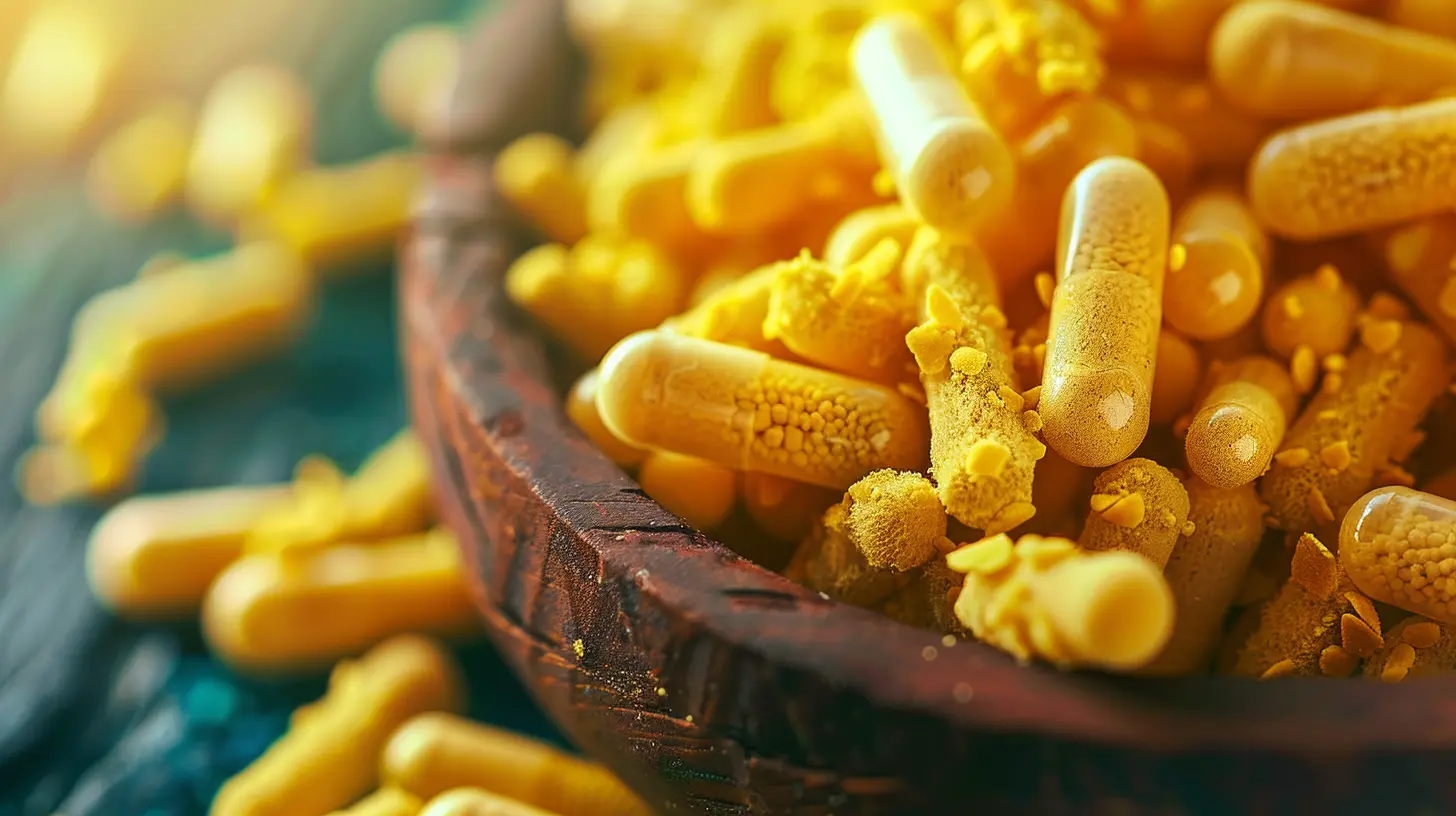How Probiotics Can Help Ease Symptoms of Crohn’s Disease
21 August 2025
Living with Crohn’s disease can feel like an unpredictable rollercoaster ride—one moment, you're fine, and the next, your gut is throwing a tantrum. If you’ve been searching for ways to manage your symptoms naturally, you’ve probably come across probiotics. But do these so-called "good bacteria" actually help, or is it just another health trend?
Let’s dive into the science (without making your head spin) and see how probiotics might just be your gut’s new best friend! 
What is Crohn’s Disease, Exactly?
Before we get into probiotics, let’s take a quick look at what Crohn’s disease actually is.Crohn’s disease is an inflammatory bowel disease (IBD) that can affect any part of your digestive tract—from your mouth all the way down to… well, you get the idea. It causes symptoms like abdominal pain, diarrhea, fatigue, and even weight loss.
And here’s the kicker—there’s no cure. Doctors typically manage it with medication, diet changes, and sometimes even surgery. But what if there was a natural way to help ease the symptoms? That’s where probiotics come in. 
What Are Probiotics and Why Should You Care?
Probiotics are the “friendly” bacteria that live in your gut and help keep things running smoothly. Think of them as tiny superheroes fighting off the villains (bad bacteria) that can wreak havoc on your digestive system.These good bacteria play a huge role in digestion, immunity, and overall gut health. But for someone with Crohn’s, their gut bacteria might be a little… off-balance. That’s where supplementing with probiotics could help restore some order. 
How Probiotics May Help People With Crohn’s Disease
Now, let’s get to the juicy part—how exactly can probiotics help people with Crohn’s?1. Restoring Gut Balance
People with Crohn’s often have an imbalance of gut bacteria, with too many harmful microbes and not enough friendly ones. Probiotics can help tip the scales back in favor of the good guys, reducing inflammation and promoting a healthier gut environment.2. Reducing Inflammation
Inflammation is the root of all evil when it comes to Crohn’s. The condition causes the immune system to go into overdrive, attacking the digestive tract. Some studies suggest that probiotics can help calm this immune response and reduce inflammation, making flare-ups less frequent and less severe.3. Strengthening the Gut Barrier
Think of your gut lining as a security guard, keeping toxins and harmful bacteria out of your bloodstream. In people with Crohn’s, this barrier can become weak, leading to something called "leaky gut." Certain probiotics may help strengthen this barrier, preventing unwanted invaders from causing chaos.4. Improving Digestion and Nutrient Absorption
Malabsorption is a major problem for those with Crohn’s. Because the gut lining is inflamed, it doesn’t absorb nutrients as well as it should. Probiotics may help improve digestion and make it easier for your body to soak up essential vitamins and minerals.5. Reducing Diarrhea and Other Symptoms
Diarrhea is one of the most frustrating symptoms of Crohn’s. Probiotics, especially strains like Lactobacillus and Bifidobacterium, have been shown to reduce diarrhea by promoting a healthier gut microbiome.
Best Probiotic Strains for Crohn’s Disease
Not all probiotics are created equal. Some strains have been specifically studied for their potential benefits in Crohn’s disease. Here are a few to keep an eye on:1. Lactobacillus rhamnosus GG (LGG)
This strain is known for its ability to survive harsh stomach acids and reach the intestines, where it can work its magic. Studies suggest it can help reduce inflammation and improve digestion.2. Bifidobacterium longum
This little guy helps strengthen the gut lining and reduce inflammation, making it a solid choice for people with Crohn’s.3. Saccharomyces boulardii
Technically a yeast rather than a bacteria, this probiotic has been shown to help with diarrhea and support the immune system.4. VSL#3
This multi-strain probiotic formula has gained attention in the IBD world. Some research suggests it may help reduce symptoms in people with Crohn’s and ulcerative colitis.How to Take Probiotics for Crohn’s
Okay, so you’re convinced that probiotics might help. But how do you actually take them?1. Supplements vs. Food
Probiotics come in two main forms: supplements and fermented foods. While supplements can give you a concentrated dose, eating probiotic-rich foods can also provide benefits. Some great options include:- Yogurt (look for "live and active cultures")
- Kefir
- Sauerkraut
- Kimchi
- Miso
- Kombucha
If you’re going for a supplement, make sure to choose a high-quality one with strains that have been studied for Crohn’s.
2. Start Slowly
If your gut isn’t used to probiotics, introducing them too quickly can cause bloating and gas (aka, an unwanted gut rebellion). Start with a small dose and gradually increase it.3. Talk to Your Doctor
Before you start popping probiotic supplements, have a chat with your doctor. While probiotics are generally safe, everyone’s body reacts differently, and you want to make sure they won’t interfere with your current treatment plan.Are There Any Downsides?
For most people, probiotics are safe. However, if you have a weakened immune system (which can be the case with Crohn’s), there’s a small risk of infections. Some people also experience mild digestive discomfort when they first start taking them, but this usually goes away after a few days.Final Thoughts: Are Probiotics Worth Trying?
So, can probiotics help ease symptoms of Crohn’s disease? While they’re not a magic cure, research suggests they may help improve gut health, reduce inflammation, and support digestion. Given their potential benefits and minimal risks, they might be worth a try—especially if your gut could use some backup in the battle against Crohn’s.Just remember, what works for one person might not work for another. Listen to your body, go slow, and always check in with your doctor before making major changes to your treatment plan.
At the end of the day, probiotics might just be one more tool in your arsenal for managing Crohn’s, along with medication, diet, and lifestyle changes. And if they can help make life even a little easier? Sounds like a win to me!
all images in this post were generated using AI tools
Category:
ProbioticsAuthor:

Eileen Wood
Discussion
rate this article
1 comments
Paula Nelson
I appreciate this article's insights on probiotics and their potential benefits for Crohn's disease. It's encouraging to see research supporting alternative approaches for symptom relief. I look forward to learning more about individualized treatment options.
September 15, 2025 at 3:18 AM

Eileen Wood
Thank you for your kind words! I'm glad you found the insights valuable. Stay tuned for more on personalized treatment options!


